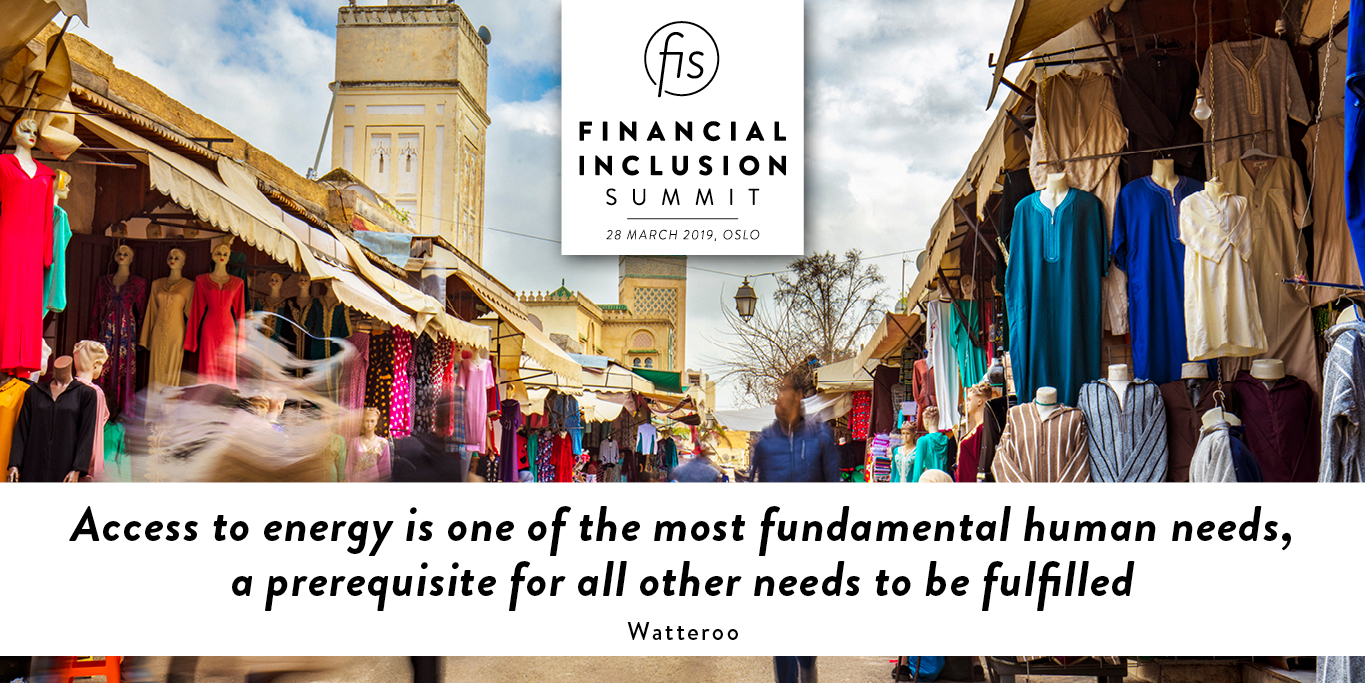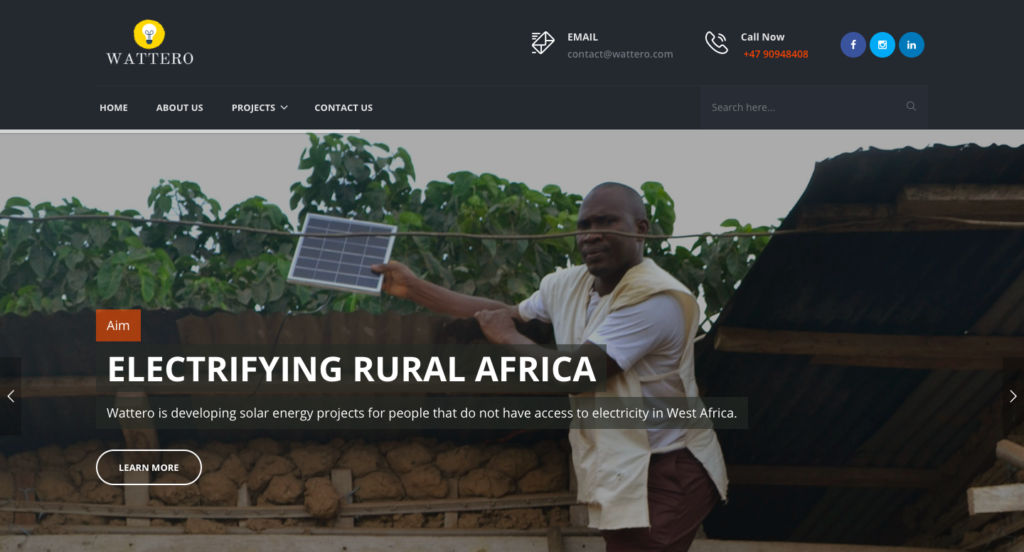
Interview with Espen Sandø, Co-founder and CEO, Wattero
The “dream” – how it all started
Wattero was started by four students, three based in Norway and one living in Côte d’Ivoire, that saw access to energy as the most fundamental human need, a prerequisite for all other needs to be fulfilled.
Given the challenges we face with climate change, that energy access must be in the form of renewable energy. With one person on the ground in a country with only half of the rural population electrified, we chose to launch a pilot project there to see if we could make it work. We found a tremendous need and learned a lot.
Wattero was founded to tackle the challenge of access to clean energy head on, and that is the purpose of the company. We have changed our business model a few times since then, but the core mission remains the same.
Product / Area of focus – to best represents Wattero’s work
Wattero targets the end customer living in rural West Africa, adapting our solutions to their needs.
Since our target customers lack bank accounts and access to credit we are focusing on the financing to make it affordable for them. Our customers are far from national grid connections, that are not very reliable anyway, so we see the future of access to power in the countryside to be peer to peer microgrids where each household owns its own power generation, but can supplement this with extra power from the microgrid or sell its excess power as an additional source of income.
Challenges in the geographical areas of influence
Sub-Saharan African market stands at 600 million people living in off-grid, un-electrified areas. The majority of the population in our initial geographical focus – rural Ivory Coast – are farmers. Although interested in adopting solar technology, they do not have the capital necessary to cover its high upfront cost.
Lacking alternatives, people use flashlights with non-rechargeable batteries and kerosene lamps, which are fire hazards and within a single year emit fumes that have an impact on the health equal to smoking 170 cigarettes.

Co-operation and partnerships
Our main partners are the local organization in the Ivory Coast PARO-CI and our manufacturers of solar panels Rural Spark and SunWaterLife. With the latter two, we get imported quality products adapted to our customers. Together with PARO-CI, we work together to reach out to customers who need solar panels. They also support us with the follow-up and quality assurance of our projects. We have developed a risk assessment tool specified for our work in the Ivory Coast together with the Swedish enterprise AidHedge and Vipicash, a Norwegian startup, that provided us with a transparent way of transferring money to our manufacturers. Norwegian partners who have made it possible for us to carry out our activities so far are the Innovation Fund “Flaskefond”, Innovation Norway and the Trønder Energy Contribution.
Successes
We launched our first pilot project in February 2018 and found that demand far outstripped our supply. We were part of the accelerator The Factory in Oslo.
We have spread our name locally with several village chiefs contacting us and requesting we come to their village. We have broadened our presence geographically within Côte d’Ivoire and have more local partners with potential projects in the West, South-West and East of the country. These areas have different crops and thus different harvest periods, meaning we are less dependent on any single harvest.
From a funding perspective we have gotten Innovation Norway’s first grant and are working on the next, and we won the pitching contest Cable Car in Tromsø, winning 100 000 NOK.
About the Nordic effort
We see financial inclusion not as feelgood thing to do, but as the financially smart thing to do. We take a long-term view and see this as markets with massive potential.
The Financial Inclusion Summit takes place in Oslo, Norway, on 28 March 2019. To find out more or request an invitation, visit: https://financial-inclusion.com/#register
Follow us on @FinIncSummit #fintechforall
